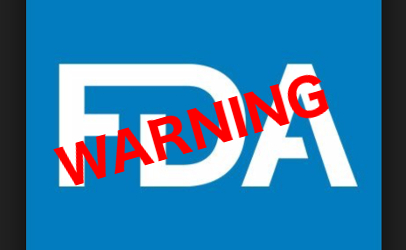A warning letter sent to a Minnesota company recently describes rodent droppings in equipment and insect infestation in production areas. The operators also failed to flush old cider from equipment, causing raw cider to contaminate finished product and potentially cause serious illnesses.
In the letter to Theodore and Randall Husinga, president and vice president, respectively, of Sunnyside Orchard, the Food and Drug Administration referenced an inspection from Sept. 27 to Oct. 12, 2018, during which inspectors documented “serious violations” of the Juice Hazard Analysis and Critical Control Point (HACCP) regulation.
“. . . your apple cider is adulterated in that it has been prepared, packed, or held under insanitary conditions whereby it may have been rendered injurious to health,” according to the Feb. 19 warning letter.
“To date, the agency has not received a written response from your firm regarding the violations noted on the Form FDA-483 Inspectional Observations, which was issued to you at the conclusion of the inspection.”
In addition to failing to ensure cider produced at the plant in Willmar, MN, was not contaminated by raw product, the operators of Sunnyside Orchard did not meet basic cleanliness standards at the production plant.
The FDA warning letter says the cider plant operators did not monitor the condition and cleanliness of food contact surfaces. They also failed to monitor the protection of food, food packaging material, and food contact surfaces from adulteration. Violations included:
- Cleaning all equipment with high pressure hoses, which includes a pressure washer, using only a detergent and potable water. Also, a sanitizer is not routinely used to clean any of the processing equipment.
- On Oct. 3, 2018, after sanitation had occurred, inspectors found a buildup of debris and/or product residue on the storage and chiller tanks, accordion press, hammer mill, filler heads, filler head primer, and equipment valves. The filler heads and filler head primer are finished product food-contact surfaces and therefore must be sanitized.
- On Sept. 27, 2018, while the company was actively processing cider, inspectors saw evidence of rodents and other pests in the cider production plant, including rodent droppings in the motor compartment of the chiller tank and fruit flies, too numerous to count, in the processing room inside the balance tank, on the cooler tank, and inside the filler trough.
During the fall 2018 inspection, FDA inspectors saw Sunnyside employees turn off and allow unprocessed cider to flow into a machine that leads to a chiller tank. Staff told the inspectors “this type of forward flow of raw cider routinely happens at start-up of each batch, with the raw cider continuing through the process to packaging,” according to the warning letter.
The letter says allowing the raw cider to co-mingle to drain directly into the chiller means it “may not be receiving an adequate UV treatment.”
Also during the 2018 review, company officials told FDA staff “the production manager visually inspect(s) and cull(s) defective apples for core rot, with a (redacted by FDA) sample collected for each production batch each day.” The company’s HACCP plan says the visual/cut core rot samples will be documented in records.
“During the inspection we did not observe a (redacted by FDA) sample being collected, nor did we observe anyone using any record to document culling,” according to the warning letter.
“. . . At CCP# (redacted by FDA), ‘Screen for the Hazard Metal Inclusion,’ you state that a visual inspection will be made of the screen daily at (redacted) by the production manager and documented on the ‘production pre-op inspection records.’ During this inspection we did not observe you conducting screen checks, nor did we observe anyone using any record to document screen checks,” the warning letter states.
(To sign up for a free subscription to Food Safety News, click here.)

